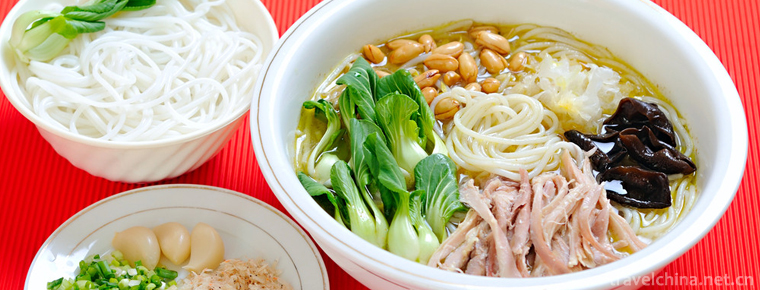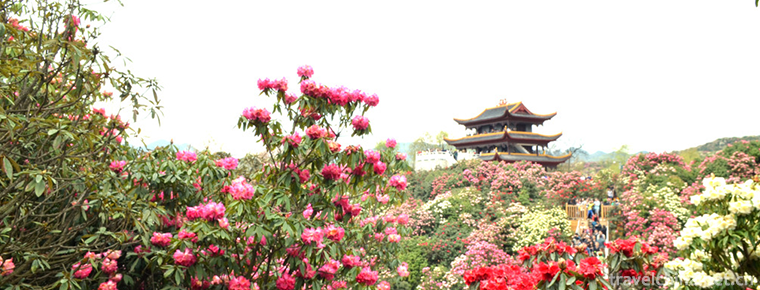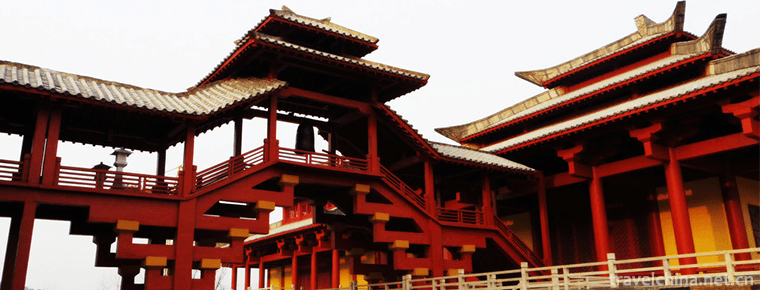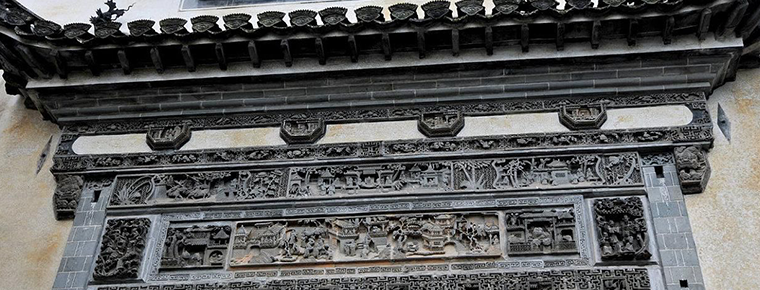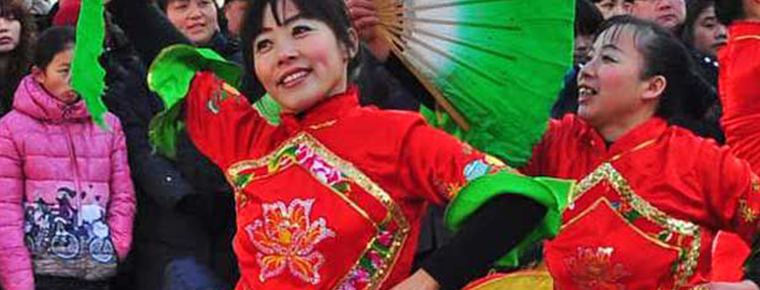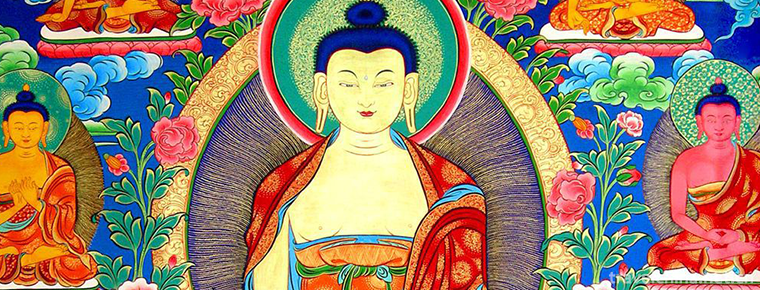Taiwanese Opera
Taiwanese Opera
Gezi Opera, a local traditional drama in Zhangzhou and Xiamen, Fujian Province, is one of the national intangible cultural heritage.
Gezi Opera is based on Southern Fujian Gezi, which absorbs the nutrition of Liyuan Opera, Beiguan Opera, Gaojia Opera, Chaozhou Opera and Peking Opera. At the beginning of the 20th century, Gezi Opera was popular on Taiwan Island, and soon spread to Xiamen, and quickly spread to southern Fujian and Southeast Asia where overseas Chinese live.
On May 20, 2006, Gezi Opera was approved by the State Council of the People's Republic of China and listed in the first batch of national intangible cultural heritage catalogues, numbered IV-64.
historical origin
Gezi Opera is the only one of the existing operas originating from Taiwan, China. In the late Ming and early Qing Dynasties, the folk songs and dances of southern Fujian, such as brocade songs, drums and tea picking, were introduced to Taiwan, and developed into the folk festival singing form of the Yingshen Competition, namely the Gezi Band. Affected by various folk art forms such as Siping Opera, Baizi Opera and Peking Opera, which were subsequently introduced to Taiwan, a new kind of opera was formed after being absorbed. Because its predecessor is "Gezi Band", it is called "Gezi Opera". In 1928, Taiwanese Gezi opera artists fled Taiwan to escape persecution by Japanese colonists, and brought Gezi opera into southern Fujian.
Cultural characteristics
Music
Gezi Opera music is divided into two parts: singing and accompaniment music. Its singing tune belongs to the conjunction of Qupai, which can be combined by homology, homology, homology and homology. Singing tunes can be divided into four main tunes, namely, seven-character tunes, miscellaneous tunes, drug-selling tunes, miscellaneous tunes and tunes. Accompaniment music can be divided into string tunes, playing cards and gongs and drums sutras.
perform
Gezi Opera began with a male-female duet, and later developed into a mature drama with three lines of life, Dan and ugliness, as well as science, music and Bai. Its business has Xiaosheng, Laosheng, Wensheng, Wusheng, once the line has Kudan, Zhengdan, ugly line has three flowers, wife and other roles. All the characters sing in their real voices, of which Kudan is the most distinctive. The main accompaniment instruments of Gezi Opera are Coconut Hu, Dajianxian, Beijing Hu, Suona, single drum, gong, cymbal, etc. According to the different performance forms and theater forms, they can be divided into the ground sweeping songboy position, the field stage songboy play, the inside stage songboy play and so on. With the rise of mass media such as radio, film and television, radio songboy play, film and TV songboy play have emerged one after another.
Metrical pattern
Gezi Opera is more white than white, and its rhythm is free. Among the more than one hundred traditional tunes, there are melodious seven-character tunes, major tunes and memorial tunes, as well as ballad-telling Taiwanese miscellaneous tunes, and various melancholy and sad melodies. In addition, it also absorbs local folk tunes and some opera music as supplements.
Representative repertoire
The content of Gezi Opera is mainly about singing folk stories. Its representative repertoires are Chen Sanwuniang, Liu Xiufu, Eight Immortals Crossing the Sea, Jigong Zhuan, Liang Shanbo and Zhu Yingtai, etc. It emphasizes loyalty and filial piety, and generally has no fixed script. Up to now, it still follows the way of "Mr. Opera" telling the opera and distributing the roles.
Inheritance and protection
Inheritance value
Since its birth, opera troupes and artists across the Straits have exchanged performances continuously. As a valuable art form shared by people on both sides of the Straits, opera has become an important link to maintain the spiritual culture of people on both sides of the Straits. The protection and development of Gezi Opera is of great significance to the promotion of Chinese traditional opera culture and the peaceful reunification of the motherland.
Inheritance status
With the progress of society, influenced by the form of modern culture and art and popular fashion, Gezi Opera is now mainly popular among middle-aged and old people, and young people are no longer interested in it. This situation has greatly affected the survival and continuity of Gezi Opera, and measures need to be taken to protect it.
Inheriting characters
Zheng Xiuqin, female, Han nationality, born in 1944 in Longhai, Fujian Province. The second batch of national intangible cultural heritage project Gezi opera representative successors, national first-level actors, representative works include: Chai Toufeng, Pipa Ji, etc.
Wu Ziming, male, Han nationality, born in Xiamen, Fujian Province in 1948. The second batch of national intangible cultural heritage projects, Gezi Opera representative successors, national first-level directors, representative works include: The Soul of the Opera, Xishi and Wuren, and so on.
Ji Zhaozhi, female, Han nationality, born in Xiamen, Fujian in 1933. The second batch of national intangible cultural heritage projects, Gezi Opera representative successors, representative works include: An'an Grandmother, White Snake Biography and so on.
Chen Zhiming, male, Han nationality, born in Longhai, Fujian in 1964. The second batch of national intangible cultural heritage project Gezi opera representative successors, national first-level actors, representative works include: Egret Goddess, Shao Jianghai, etc.
protective measures
Up to 2017, Fujian has innovated the way of inheritance and development of local operas, promulgated Several Opinions on the Inheritance and Promotion of Fujian Opera, strengthened the support of operas, implemented the "Fujian Opera Protection, Inheritance and Promotion Project", "Local Opera Classic Audio and Video Project", established the database of local operas, promoted the operas into the campus, and vigorously promoted the creation, protection and art of operas. The construction of "four centers and one protected area" such as art dissemination, research and ecological protection will build a "national demonstration base for the inheritance and development of local operas". The present 18 local operas in Fujian, such as Fujian Opera, Liyuan Opera, Puxian Opera, Gaojia Opera, Opera of Opera (Xianju) and five cross-provincial operas, such as Peking Opera and Yue Opera, as Puppet Puppet Opera, Puppet Puppet Puppet Opera and Puppet Puppet Puppet Opera will be carried out. Protected.
In June 2016, 129 opera performers participated in the first advanced seminar, divided into scriptwriter class, director class, composer class and stage art class. From July 15 to August 19, Opera Talents Huangpu Phase I conducted intensive training in the Chinese Opera Academy. Subsequently, the tutor conducted a one-year long-distance tutoring for the students, and the students exchanged with their tutors in various ways in the practice process of their respective units. In which, Gezi Opera was inherited and protected.
social influence
Important performances
On October 18, 2008, Taiwanese Tang Meiyun Gezi Opera Troupe and Xiamen Gezi Opera Troupe co-rehearsed the signing ceremony of the large-scale Gezi Opera "Love of Butterflies" at Xiamen Cultural and Art Center.
On November 4, 2018, the Tenth Cross-Strait TV Competition for New Players in Taiwan was held in Xinbei on November 4, and Gezi Opera was displayed on the spot.
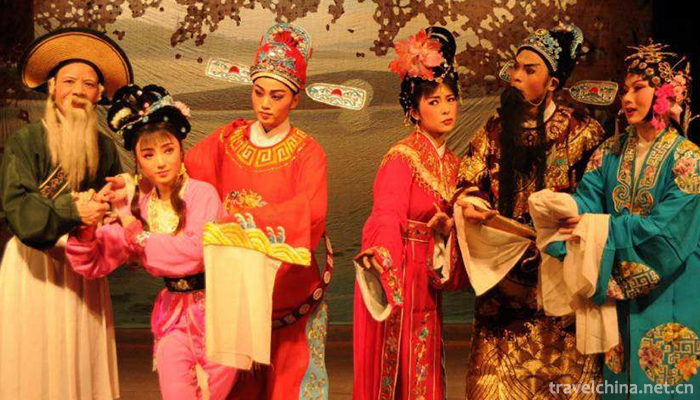
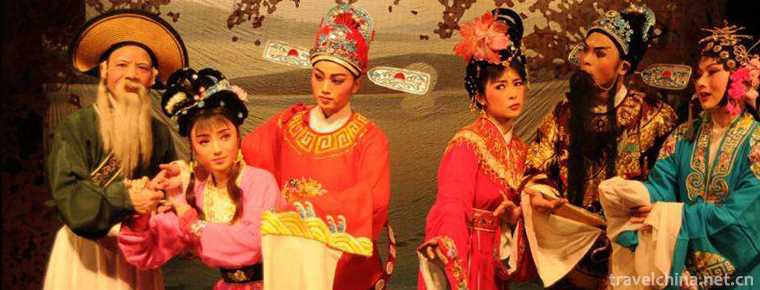
Taiwanese Opera
-
Chill chicken rice noodles
Cold chicken noodles, Yunnan snacks, cold rice noodles with ...
Views: 286 Time 2018-10-17 -
Baili Rhododendron Scenic Area in Bijie City
Bijie Baili Rhododendron Scenic Area is located in the northwest of Guizhou Province and the central part of Bijie City. It belongs to the Baili Rhododendron Management Area of Bijie City.
Views: 270 Time 2018-12-12 -
Hengdian Film and Television City Scenic Area
Hengdian Film and Television City is a large-scale comprehensive tourist area which integrates film and television, tourism, vacation, leisure and sightseeing. It has been rated as the national AAAAA-
Views: 194 Time 2019-01-13 -
Traditional flower arrangement
Chinese traditional flower arrangement art has a long history, extensive and profound, is the representative of Oriental flower arrangement art. It has the characteristics of dignified and elegant mod
Views: 132 Time 2019-04-19 -
Huizhou three carving
The three carvings in Huizhou are a kind of local traditional carving art. They refer to three kinds of local traditional carving crafts, i.e. wood carving, stone carving and brick carving,
Views: 158 Time 2019-05-04 -
Jingxing spent
Jinglonglahua, a traditional dance in Jinglongxian County, Hebei Province, is one of the national intangible cultural heritage.
Views: 369 Time 2019-05-08 -
regong art
Regong art is an important part of Tibetan Buddhist art in China and a school with wide influence. It originated in Longwu River Basin in Tongren County, Huangnan Tibetan Autonomous Prefecture, Qingha
Views: 378 Time 2019-06-11 -
Southwest University of Science and Technology
Southwest University of Science and Technology is located in Mianyang City, Sichuan Province. The school is a university built jointly by the Sichuan Provincial People's Government and the Ministry of
Views: 230 Time 2019-08-31 -
Muli Temple
Muli temple is a key cultural relics protection unit in Sichuan Province. It is located at the foot of daniyabu mountain, youyidian village, Taoba Township, Muli Tibetan Autonomous County. It is more than 300 kilometers away from Xichang City
Views: 296 Time 2020-10-16 -
Jintang Yunding mountain scenic spot
Jintang Yunding mountain is located in the middle section of Longquan Mountain in Jintang County, Chengdu. The scenic spots include Yunding mountain, Hantan ancient ferry, Jintang small Three Gorges of Tuojiang River
Views: 220 Time 2020-11-05 -
Luodai Ancient Town
Luodai Ancient Town is located in Longquanyi District, Chengdu City, Sichuan Province, with a total area of more than 20000 square meters. Luodai Ancient Town is a national historical and cultural town and one of the five "Dongshan five fields" in Chengdu.
Views: 184 Time 2020-11-05 -
Nanchong scenic spot
The national 5A tourist attraction is located in Ma'an Town, Yilong County, with a total planning area of 52.5 square kilometers. The core scenic area with the former residence of Zhu De, the birthplace of Zhu De and the memorial hall of former residence of Comrade
Views: 334 Time 2020-12-17
